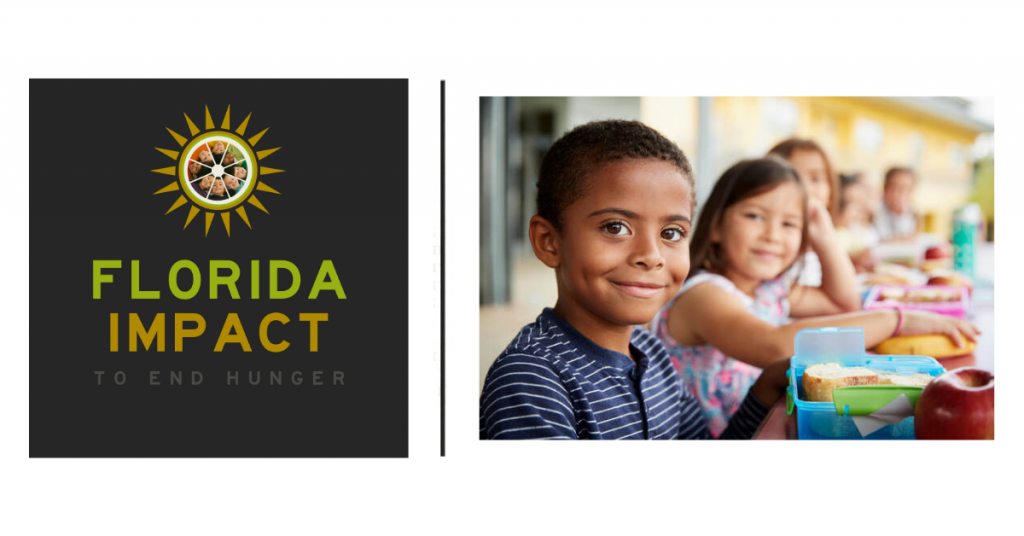The Afterschool Meals Program – Feeding More Children during COVID-19

The Afterschool Meals Program – Feeding More Children during COVID-19
Written by: Katie Williams, COO, Florida Impact to End Hunger
The Afterschool Meals Program (AMP) is a federal nutrition program that offers reimbursement for meals and/or snacks served at school-based or community-based, public, non-profit and some for-profit afterschool enrichment sites. Snacks, breakfasts, lunches, and suppers are available through the program, including on weekends and school closures. Through the AMP, children and youth can receive a snack (which includes two items such as apple and milk) and/or a supper (which includes five items, such as a turkey sandwich, an apple, carrot sticks, and milk).
To ensure schools and community sponsors can continue to meet the nutritional needs of children in their communities during COVID-19, the USDA has issued a number of waivers for operating the child nutrition programs. The following waivers are currently in effect through June 30, 2021:
- Non-Congregate Feeding: Allows for consumption of meals off-site and outside of group settings. This allows for serving models like grab-n-go, curbside pick-up, mobile/bus routes, and home delivery.
- Meal Service Time Flexibility: Provides flexibility for serving times. Allows for serving multiple meals for the same day at one time and also meals for multiple days at the same time.
- Parents and Guardians to Pick Up Meals for Children: allow parents or guardians to pick up non-congregate meals without a child present.
- Meal Pattern Flexibility: allow meal pattern modifications when certain foods are not available during the COVID-10 pandemic, and simplifies the food procurement rules.
- Offering Virtual Activities: Afterschool care centers providing non-congregate meals under the waiver must comply with the requirement to provide an education or enrichment activity (7 CFR 226.17a(b)(1)). However, under the non-congregate and parent pick-up waivers, these activities may be conducted virtually or in other non-congregate ways. Program operators may consider offering online homework assistance, activity packets, electronic games and books, or other e-learning activities for the children to partake in at home. Although children are not required to participate in or complete the activity in order to receive an afterschool meal or snack, the afterschool care center must offer the activity.
For more information on the AMP, please visit www.FloridaAfterschoolMeals.org or email KWilliams@flimpact.org
